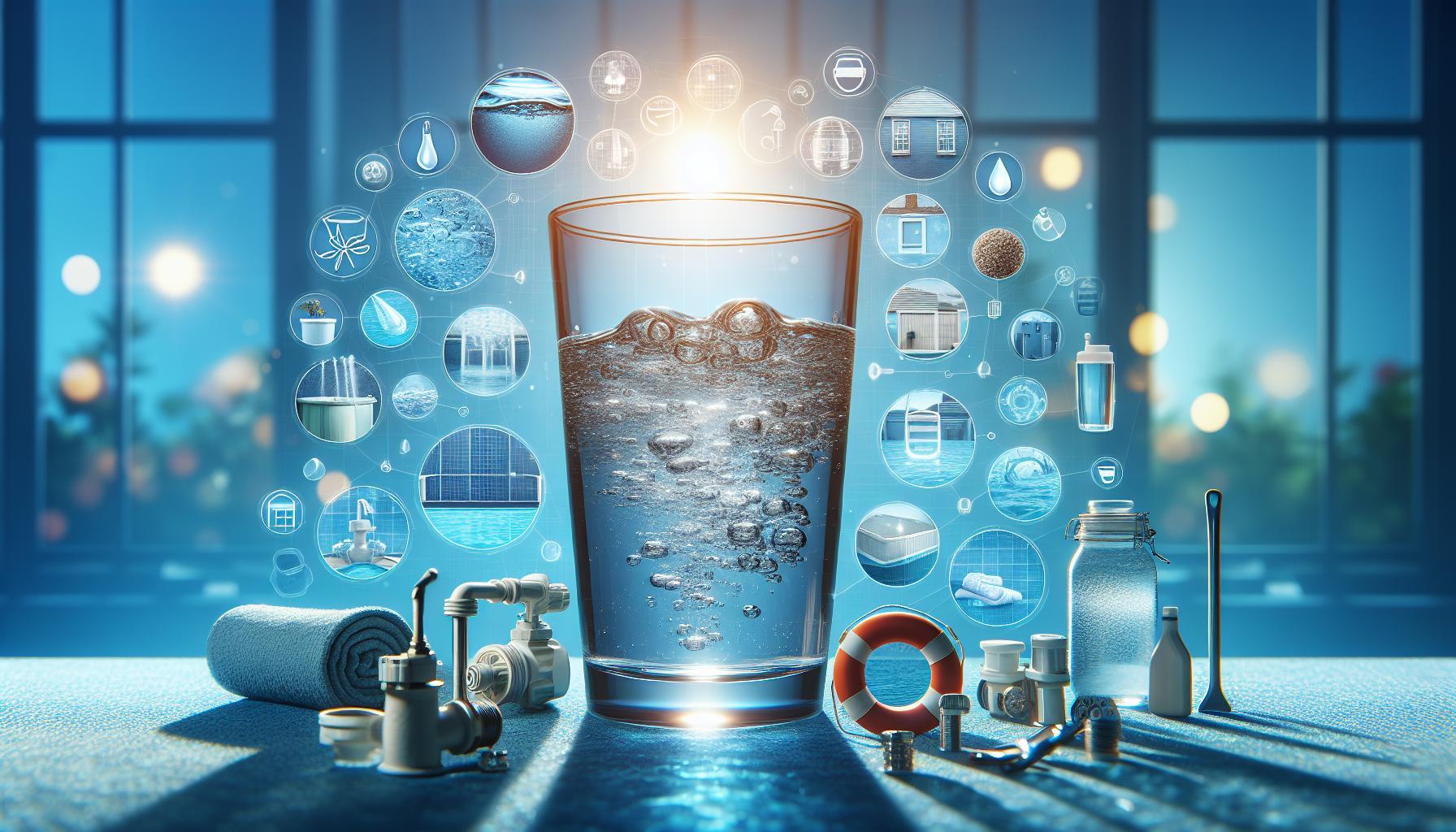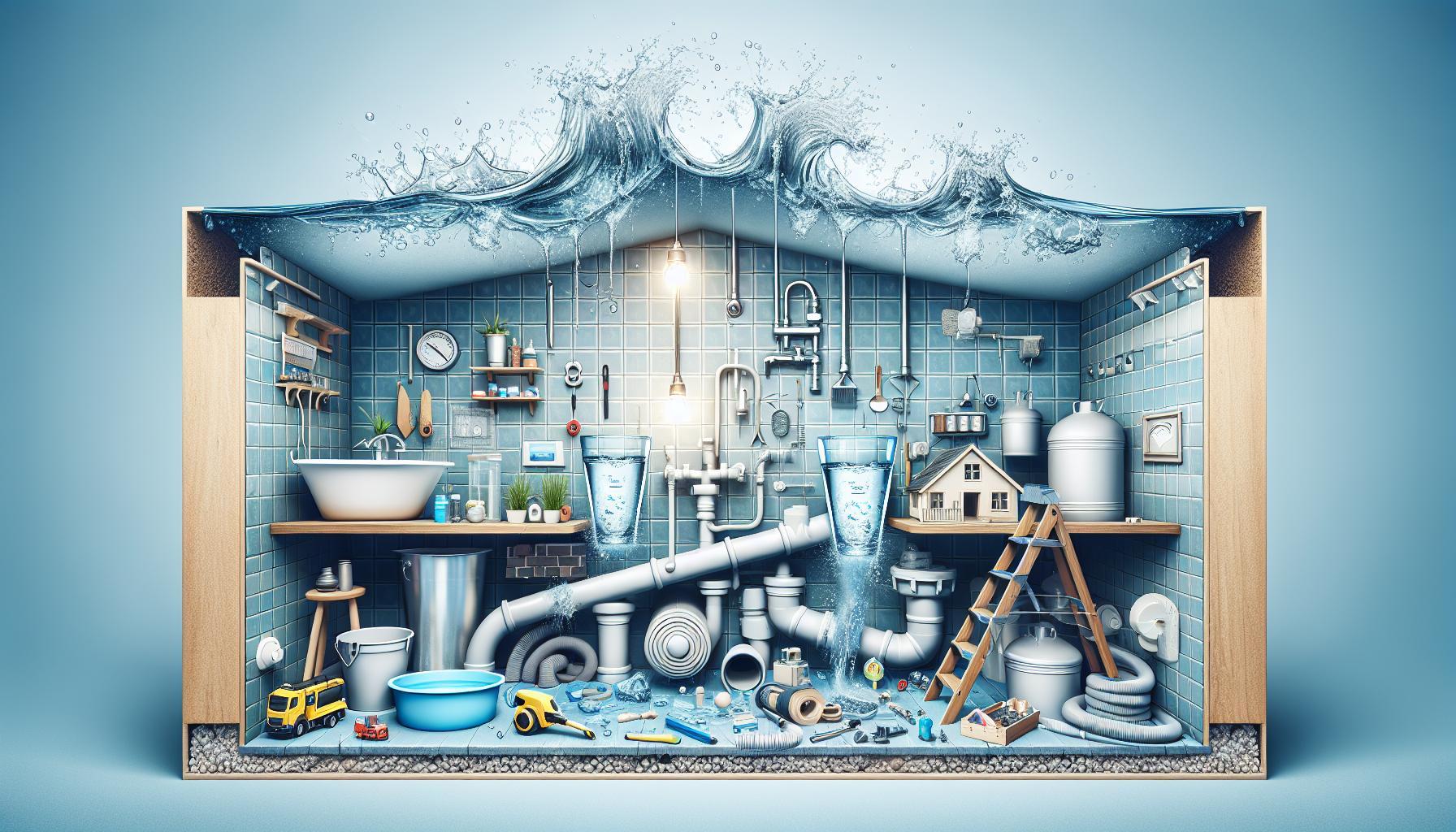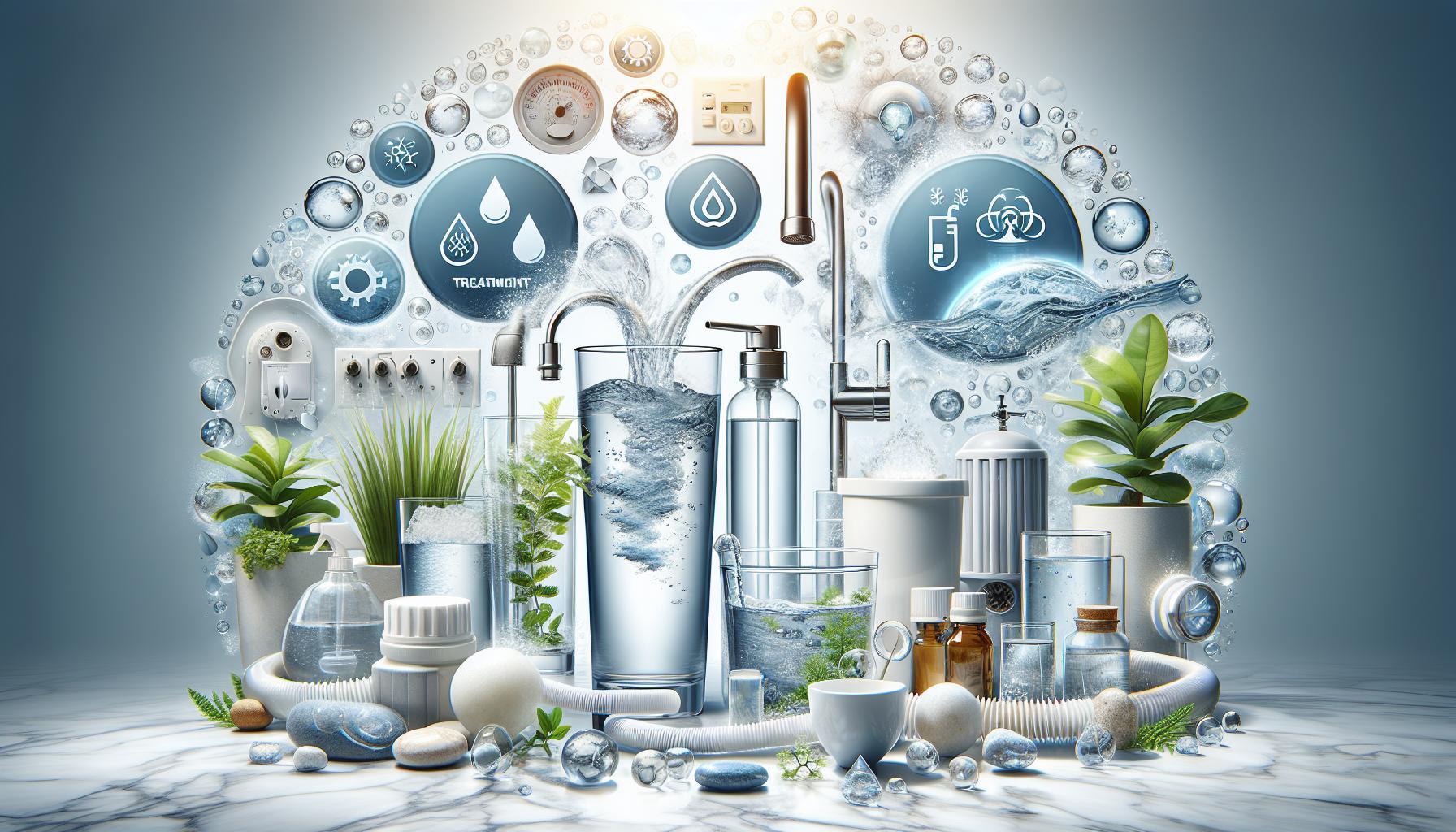When hiring a power washing service, a common concern is whether the company will bring their own water or utilize your supply. Understanding this aspect is crucial, as it affects overall costs and convenience. Most power washing companies typically prefer to use your water source, making the process efficient and straightforward. This article will explore what you can expect regarding water usage when hiring these services.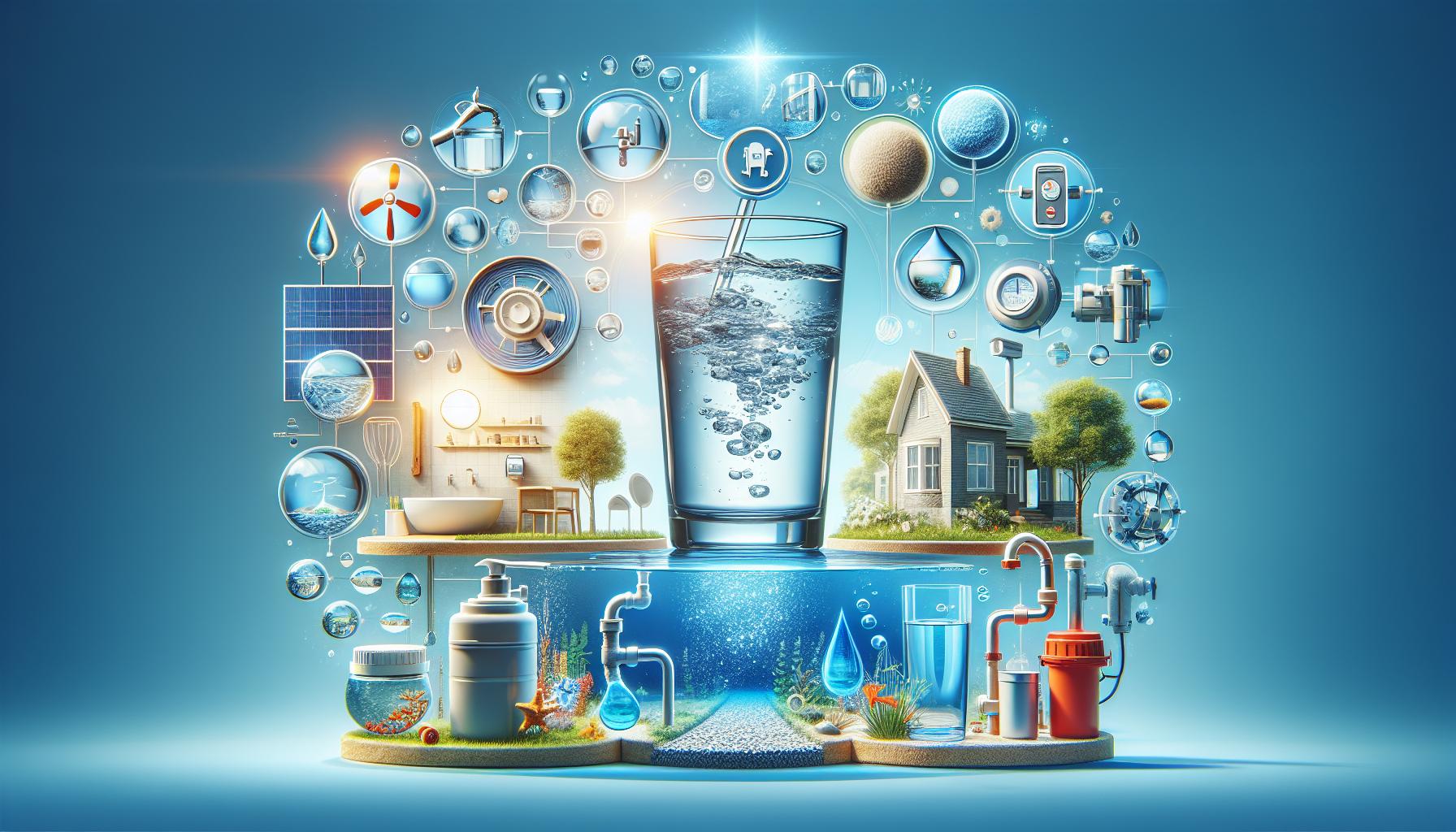
Understanding Water Sources: Do Powerwash Companies Provide Their Own Water?
In the world of power washing, the source of water can significantly influence the efficiency and cost of service. Many homeowners find themselves asking whether power wash companies provide their own water or if they use the water from the property being serviced. Understanding this aspect can help you prepare for your project and potentially save costs.
Most power washing companies typically prefer to utilize the customer’s water supply due to financial practicality. Using the water source from the job site can minimize operational costs, which directly benefits the customer. However, there are instances where a power washing service may opt to bring their own water. This usually occurs in situations where the site has limited access to water, or there are strict local regulations concerning water use, often due to drought conditions or conservation efforts. In these cases, companies may arrive with portable tanks filled with water to ensure they can complete the job effectively without compromising quality or adherence to local laws [[2]].
When considering whether to hire a power washing service, it’s beneficial to inquire specifically about their water sourcing practices. Some companies may even charge a premium for jobs requiring them to transport their own water, as this adds logistics and operational costs. Being informed about these factors can help you make a more budget-conscious decision when hiring a professional. Additionally, understanding local regulations can help you prepare for discussions with service providers regarding what might be necessary for your project [[3]].
Ultimately, whether a company uses their own water or your supply can affect not only the cost but also the efficiency of the service. If you’re in an area with ample water supply and no restrictions, most companies will happily use your water and may even prefer it as it simplifies their logistics. However, if the local climate demands careful water use, discussing the options with potential service providers can help ensure that your power washing needs are met without running afoul of local guidelines [[1]].
The Benefits of Using a Powerwash Company’s Water
Using a professional power washing company can make a significant difference in the results you achieve when cleaning your home’s exterior surfaces. One key aspect often overlooked is the water used during the power washing process. Powerwash companies frequently bring their own water, ensuring that it meets specific standards for effective cleaning. This practice not only enhances the cleanliness of your surfaces but also guarantees that the water pressure and temperature are optimized for the job at hand.
Advantages of Using Company-Sourced Water
When you hire a power washing service, the benefits of using their water include:
- Water Quality: Professional companies often use filtered or treated water to prevent contaminants from damaging surfaces.
- Consistent Pressure: Having a reliable water supply allows for consistent pressure, which is crucial for effective cleaning without causing damage.
- Optimal Temperature: These companies can heat the water if necessary, providing better results on tough stains like grease or mold.
- Environmental Considerations: Many professionals are knowledgeable about local regulations and use water responsibly, minimizing waste and ensuring proper runoff management.
Utilizing a power washing company’s water can significantly reduce the concerns homeowners may have about their own water supply, such as pressure fluctuations or water quality issues. This aspect of the service is often part of a broader commitment to professionalism and customer satisfaction, which many homeowners appreciate.
Furthermore, opting for a team that handles their own water supply provides peace of mind. You won’t have to worry about your water bill skyrocketing from the job, nor will you face potential restrictions on water use, especially during drought conditions. Ensuring that you also ask about the water source during the hiring process can help you gauge a company’s commitment to quality service.
In summary, investing in a power washing service that brings its own water streamlines the process, enhances the cleaning efficacy, and ensures that the job is completed responsibly and efficiently.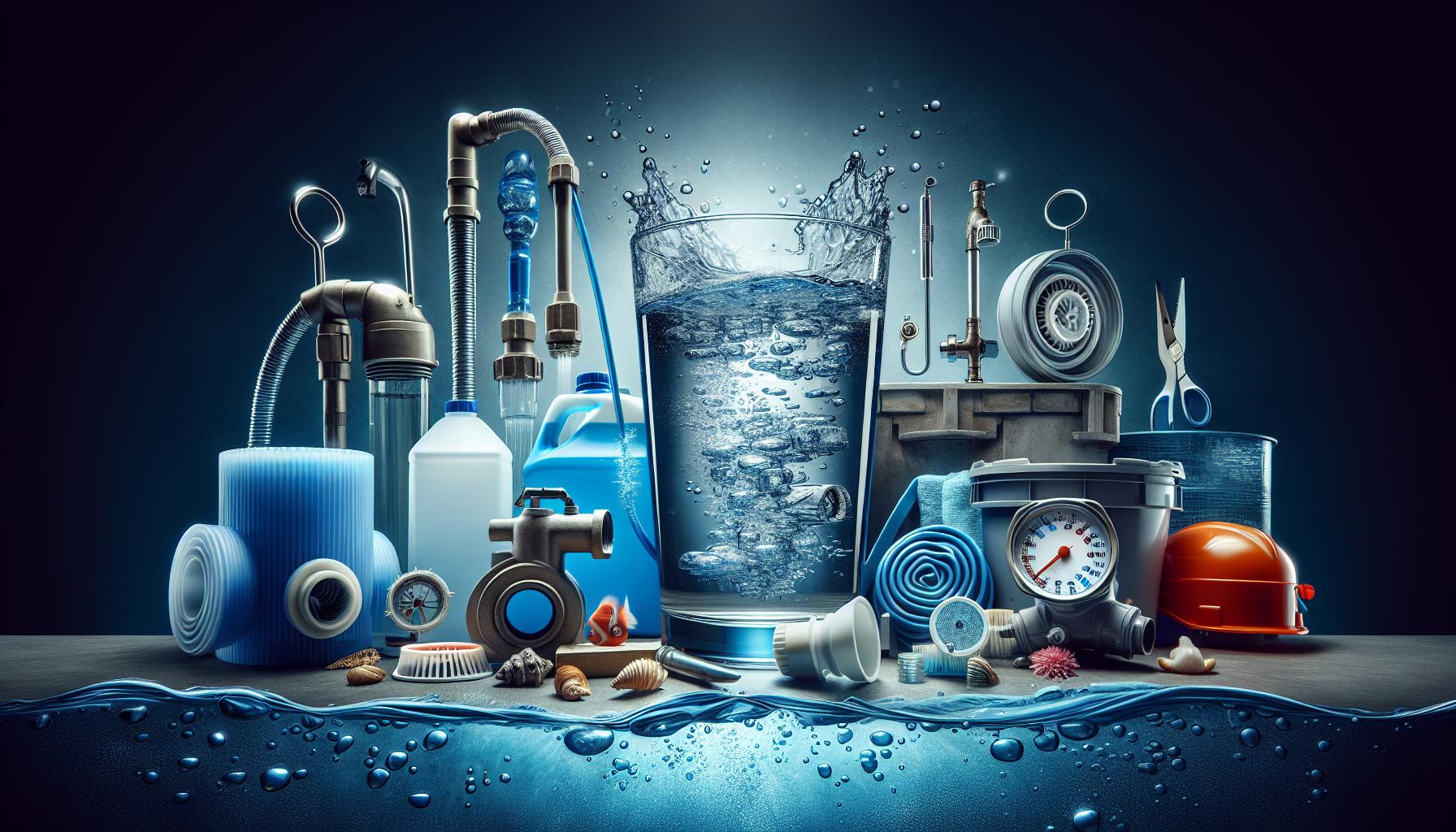
What to Expect During a Power Washing Service: A Step-by-Step Guide
When considering a power washing service, understanding the process can greatly enhance your overall experience and satisfaction. It’s more than just blasting dirt away with high-pressure water; it involves a careful and systematic approach tailored to the specific needs of your property. To ensure a successful cleaning session, it’s important to have clear expectations about how the service will unfold.
Initial Assessment
Before any power washing begins, the technicians will conduct a thorough assessment of the areas that require cleaning. This will typically include:
- Evaluating surface types (concrete, wood, siding, etc.)
- Identifying any specific stains or areas of concern
- Discussing your preferences and any particular cleaning solutions that may be used
This step not only informs the technicians about the best methods to use but also allows you to address any questions regarding the process, including the inquiry, “Do powerwash companies use their own water?” Many providers do have the capability to use their own water supply, which ensures consistency and accountability during the job.
Preparation and Setup
Once the assessment is complete, the team will prepare the area to be cleaned. Preparation may involve:
- Moving outdoor furniture or obstructions away from the workspace
- Protecting nearby plants or sensitive surfaces that could be damaged by the water pressure
- Setting up equipment, including hoses and nozzles
Proper preparation is critical; it not only facilitates a more efficient cleaning process but also helps to prevent any accidental damage.
Cleaning Process
During the cleaning, the technicians will execute a systematic approach, often using different pressures and cleaning solutions depending on the surface being treated. Key aspects of this stage include:
- Applying environmentally safe detergents to help break down grime and stains
- Using varying pressure levels to ensure thorough cleaning without damaging delicate surfaces
- Rinsing the area after cleaning to remove any residue and ensure a complete clean
Expect visible improvements during the cleaning process as layers of dirt and mildew are washed away, showcasing the true colors and textures of your surfaces.
Final Walkthrough
After the cleaning, a final walkthrough with the power washing crew is beneficial. This gives you the chance to:
- Inspect the work done and ensure everything meets your expectations
- Discuss any follow-up services that may be recommended based on your property’s condition
- Ask any lingering questions about the service or future maintenance tips
This step solidifies your understanding of what was accomplished and reinforces the importance of ongoing maintenance post-cleaning. Knowing what to expect during a power washing service allows you not just to prepare your property, but also to engage effectively with the professionals, ensuring a successful outcome.
How Water Quality Affects Power Washing Results
The effectiveness of power washing is significantly influenced by water quality, which is often an overlooked factor when hiring a service. Many customers wonder, “Do powerwash companies use their own water?” and what implications that might have for their cleaning results. Poor water quality can lead to issues that not only diminish cleaning effectiveness but can also shorten the lifespan of power washing equipment.
How Water Quality Impacts Performance
Several key aspects of water quality directly affect power washing performance:
- Hardness of Water: Hard water, which contains high levels of calcium and magnesium, can lead to scale buildup within the power washer’s components. This scale can clog nozzles and hoses, reducing water flow and efficiency.
- Contaminants: Water that contains minerals and impurities may leave streaks or residues on surfaces after washing. These contaminants can negatively impact the appearance of cleaned surfaces and require additional scrubbing.
- Temperature: The effectiveness of cleaning solutions is often contingent upon water temperature. If the water used is too cold, it may not activate detergents properly, rendering them less effective during the cleaning process.
- pH Levels: Water with an improper pH level can react with cleaning agents, altering their efficacy. Neutral to slightly alkaline water is typically preferred for most pressure washing tasks.
Real-World Example: Hard Water Effects
For instance, a power wash service utilizing hard water might find that even after rigorous cleaning, surfaces like concrete driveways or patios still appear dirty or stained. This scenario is particularly common in regions where mineral content in the water is elevated. To mitigate these issues, some professional services invest in water softeners or filtration systems that can improve the quality of water used during the washing process, ensuring better cleaning results.
Recommendations for Homeowners
If you’re considering hiring a power washing service, ask about the water quality they use. Some questions you might pose include:
- Do you have a filtration system to purify the water before use?
- Is your water soft or hard, and how might that affect my cleaning?
Being informed about the water quality can help you anticipate the outcome of your power washing project. Understanding these dynamics not only prepares you for realistic expectations but also enhances the overall effectiveness of the service you receive. As you explore options and ask, “Do powerwash companies use their own water?”, remember that good water quality can make all the difference in achieving a spotless finish.
Comparing On-Site vs. Company-Supplied Water: What You Need to Know
When considering the logistics of water usage for power washing services, the choice between on-site water supply and company-provided water can greatly impact not only operational efficiency but also cost and environmental practices. Understanding these differences can help you make an informed decision when hiring a powerwash company.
On-Site Water Supply
Utilizing an on-site water source can streamline the power washing process, minimizing delays and maximizing efficiency. Here are some advantages:
- Immediate Availability: On-site water means that contractors can start work without needing to transport water, which can be especially important for large-scale jobs.
- Cost-Effective: This option often reduces expenses associated with transporting water, particularly for extensive projects.
- Environmental Considerations: Using existing water resources can limit the carbon footprint associated with hauling water to the site.
However, there are factors to consider, such as water quality and local regulations. It’s essential to ensure that the water supply meets safety and health guidelines, particularly if you are in an area where the water might be contaminated or not suitable for power washing.
Company-Supplied Water
On the other hand, there are scenarios where a power washing company could provide their own water. This approach comes with its own set of benefits:
- Quality Control: Companies that use their own water can ensure that it’s clean and suitable for the job, especially when using specialized detergents or cleansers.
- Portability: When working in locations where water access is limited, company-supplied water is beneficial, allowing for flexibility in operational planning.
- Regulatory Compliance: Some companies may have the equipment and knowledge to handle local regulations regarding water use and conservation better than a typical client might.
Ultimately, the choice between on-site versus company-supplied water hinges on specific project needs, availability, and the desired quality of service.
| Aspect | On-Site Water | Company-Supplied Water |
|---|---|---|
| Accessibility | Immediate availability at location | Requires transport but ensures quality |
| Cost | Potentially lower overall costs | Higher costs due to transport |
| Environmental Impact | Lower carbon footprint | Higher due to transport logistics |
| Regulatory Compliance | May vary based on local supply quality | Typically better managed by professionals |
In conclusion, thoroughly assess both options regarding your specific needs and constraints. Understanding whether powerwash companies use their own water and the implications of this choice will ultimately optimize your hiring decision and enhance the effectiveness of your cleaning project.
Setting Expectations: What to Discuss with Your Powerwash Provider
When considering a powerwashing service, it’s vital to establish clear expectations to ensure a smooth and satisfactory experience. One common concern is whether powerwash companies use their own water, which can impact both pricing and logistics. Before hiring a provider, ask them directly about their water source. Some companies may bring their own water tanks, especially in areas where water access is limited. Understanding this aspect will not only clarify your cost structure but will also prepare you for any additional requirements, such as drainage considerations.
Key Topics to Discuss
To facilitate a productive conversation with your chosen powerwashing provider, consider addressing the following key points:
- Services Offered: Inquire about the specific services available, such as surface cleaning, roof washing, and fleet cleaning.
- Water Supply: Confirm whether they will be using their own water and how that affects service pricing.
- Equipment Used: Understanding the type of equipment and cleaning solutions employed can help gauge the effectiveness and safety of the washing process.
- Scheduling and Duration: Discuss expected timelines for the service to ensure there’s no disruption to your routine.
It’s also wise to talk about any potential environmental considerations. Many companies are increasingly eco-conscious, employing biodegradable detergents that are safe for landscaping and waterways. Ask your provider what measures they take to minimize their environmental impact, especially if you have sensitive areas surrounding your property’s exterior.
Gathering Quotes
When reviewing potential service providers, obtain detailed quotes that breakdown costs related to labor, materials, and equipment utilized. Create a comparison table to make this process easier:
| Provider | Quote Amount | Water Source | Services Included |
|---|---|---|---|
| Provider A | $150 | On-Site | Driveway, Deck, Fence |
| Provider B | $200 | Their Own | Roof, Walls |
By discussing these topics and comparing options thoroughly, you’ll be better equipped to make an informed decision. Always prioritize clarity and communication with your powerwashing provider to meet and manage expectations effectively while exploring the essential question, “Do powerwash companies use their own water?” This preparation will lead to a more satisfactory cleaning experience tailored to your needs.
Eco-Friendly Practices in Power Washing: Water Usage Considerations
In the realm of power washing, the conversation around water usage is becoming increasingly important as environmental concerns rise. Eco-friendly practices in power washing not only minimize water wastage but also ensure that the cleaning process has the least impact on the surroundings. Many power washing companies strive to implement technologies and practices that promote water conservation, leading to a more sustainable cleaning method.
One significant way that power washing services can mitigate water usage is by utilizing high-efficiency pressure washers that require less water while still providing powerful cleaning results. These machines are designed to operate effectively at lower flow rates, which means less water is drawn from sources during the washing process. When researching the question of whether power wash companies use their own water, you may find that reputable businesses often bring their own supply, sourced from tanks, reducing reliance on municipal water systems and protecting local resources.
Moreover, adopting eco-friendly detergents can enhance the effectiveness of low-water pressure washing, allowing surfaces to be cleaned with minimal rinsing. Many eco-friendly detergents are biodegradable and designed to work in synergy with water to break down dirt and grime efficiently. This means that when you ask what to expect before hiring a power wash company, you’ll likely discover a commitment to using products that are safe for both your property and the environment.
| Water Conservation Methods | Description |
|---|---|
| High-Efficiency Pressure Washers | Require less water and still achieve effective cleaning. |
| Water Recycling Systems | Collect runoff water for reuse during cleaning operations. |
| Use of Biodegradable Detergents | Enhances cleaning while being eco-friendly and safe. |
In conclusion, when considering hiring a power washing company, it’s worthwhile to inquire not just about their cleaning methods but also about their water usage practices. Understanding whether they implement eco-friendly techniques can guide you towards making a choice that aligns with sustainable living values. By supporting companies that prioritize water conservation, you contribute to a collective effort in reducing environmental impact and promoting responsible cleaning practices.
Common Misconceptions About Water Usage in Power Washing Services
Power washing is often surrounded by myths that can deter potential clients from utilizing its benefits. One of the most prevalent misconceptions relates to water usage. Many homeowners believe that power washing consumes an excessive amount of water, leading them to seek alternative cleaning methods. However, the reality is quite different. In fact, power washing typically utilizes significantly less water than traditional garden hoses, making it a more environmentally friendly option.
Understanding Water Usage with Power Washing
When it comes to efficiency, power washing stands out. A standard garden hose may release around 5 to 10 gallons of water per minute, while a power washer, depending on its settings, can use as little as 2 gallons per minute. This dramatic reduction in water flow not only conserves water but also enhances cleaning power. Here are some reasons why power washing actually promotes water conservation:
- Targeted Cleaning: The high-pressure jets allow for direct cleaning on surfaces, minimizing the amount of water needed to achieve similar results.
- Speed: The efficient cleaning action of power washing allows professionals to accomplish more in less time, further reducing overall water usage.
- Effectiveness: The combination of high pressure and optional detergents can lift grime more effectively, meaning less water is needed to rinse away residual dirt.
Do Powerwash Companies Use Their Own Water?
This question often arises when homeowners consider hiring a power washing service. Many companies come equipped with their own water supply, especially if the job site lacks adequate water access. This means they can effectively manage their resources without putting any strain on the client’s water system. It’s advisable to ask the service provider about their water usage policies and whether they bring their own water, which could be especially important for large-scale cleanings or for properties with limited water access.
In summary, understanding the facts around water usage in power washing can help dispel the myths that often discourage people from choosing this cleaning method. By realizing that power washing not only saves water but is also an effective way to maintain your home or business, clients can make informed decisions when asking, “Do powerwash companies use their own water? What to expect before hiring.”
FAQ
Do Powerwash Companies Use Their Own Water?
Yes, most powerwash companies do use their own water. They typically bring tanks filled with water to the job site, allowing them to work efficiently without being dependent on your water supply.
Using their own water ensures that the cleaning process is uninterrupted and that they can maintain a consistent pressure and temperature necessary for effective power washing. Companies often have equipment that can recycle water, further enhancing their efficiency.
What to Expect Before Hiring a Powerwash Company?
Before hiring a powerwash company, expect a thorough assessment of your property, including size and the types of surfaces to be cleaned.
Reputable companies will typically conduct a pre-clean assessment to tailor their service to your needs. This often includes discussing specific stains or issues you’re concerned about and providing a detailed quote. Understanding their cleaning methods and equipment can also help set clear expectations.
Can I Use My Own Water for Power Washing?
Yes, you can use your own water for power washing, but it’s important to communicate this with the company beforehand.
Most professional powerwashers prefer to use their own water to ensure efficiency and quality. However, if you have concerns about water usage or costs, discussing this option with the company can lead to a mutually beneficial arrangement.
Why Does Water Temperature Matter in Power Washing?
Water temperature plays a crucial role in the effectiveness of power washing, as hot water can effectively break down grease and grime.
Many powerwashing companies use heated water because it enhances the cleaning process, especially for tough stains. Hot water can cut through oil and other substances that cold water struggles with, making it a vital factor in achieving excellent results.
Do Powerwash Companies Prepare the Area Before Cleaning?
Yes, reputable powerwash companies will prepare the area before cleaning to ensure safety and effectiveness.
This preparation may include removing furniture, covering plants, and ensuring proper drainage to prevent water pooling. By effectively preparing the site, they help prevent damage and ensure a clean finish.
What Equipment Do Powerwash Companies Use?
Powerwash companies use high-quality equipment like pressure washers that can deliver significant pressure and hot water for optimal cleaning.
Typical setups include machines capable of handling 3500 PSI and temperatures reaching up to 225 degrees Fahrenheit. The choice of equipment affects the thoroughness of the cleaning, so it’s wise to ask about the specific tools they employ.
Can Power Washing Remove Tough Stains?
Yes, professional power washing can effectively remove tough stains from surfaces like concrete and decks.
In addition to pressure, the use of appropriate cleaning solutions enhances their effectiveness, especially for stains like oil or rust. However, some stains might require multiple treatments, so discussing expectations with your provider is important.
The Way Forward
In conclusion, when hiring a power washing company, it’s important to understand that most will utilize your water supply for the job. This approach streamlines the process and minimizes costs, as on-site water access simplifies logistics. However, in situations where water is scarce or restrictions apply, some companies might bring their own supply, which could incur additional fees. Familiarizing yourself with these aspects will help you set realistic expectations for your service and budget. For further insights or questions about the power washing process, don’t hesitate to explore more articles and resources that delve deeper into this essential home maintenance topic. Your journey to a cleaner, more vibrant property starts here!

